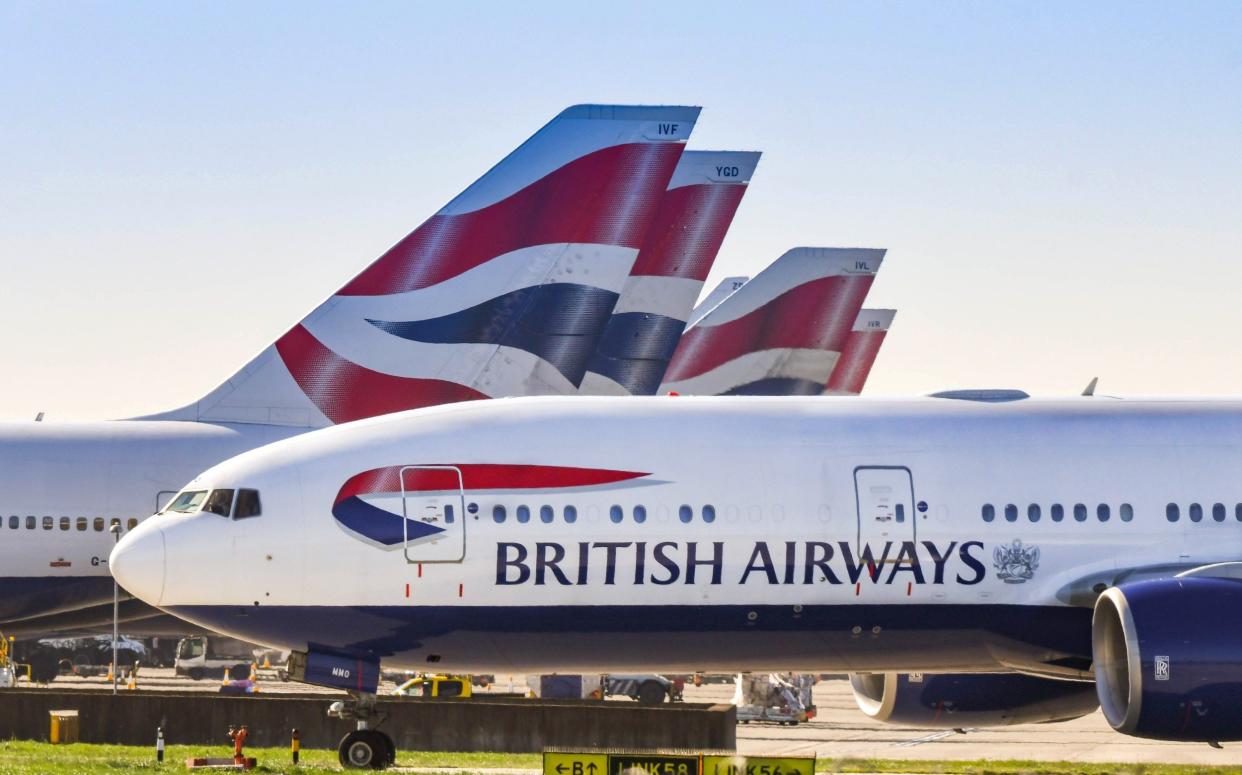Why it's too late for British Airways to fix its summer of chaos

Like dark clouds on the horizon, threatening to ruin a day at the beach, we have known for some time that the summer holiday season may not go quite as we’d hoped. Already strikes, staff shortages, airport capacity limits and baggage handling chaos have come together to ruin thousands of holidays.
Today, it appears that British Airways has reached an agreement with unions which could prevent strike action in late July. But this doesn’t make up for yesterday’s announcement that it plans to cancel more than 10,000 short-haul flights between August and October. Strike or no strike, 18 per cent of its summer schedule has been axed, representing millions of seats. How is British Airways making such a mess of its raison d’être: to fly, and to serve?
The core of the problem for British Airways, as with many airlines and airports right now, is staff shortages. During the pandemic, the flag carrier cut around 10,000 jobs and put 25,000 staff on furlough. Now international travel is back, but filling those spaces has been harder than expected. Some members of staff rethought their careers and disappeared, while others could not be lured back in.
Travel expert John Grant of Midas Aviation said: “I heard one story of a former BA employee made redundant at the beginning of Covid from a £38,000 frontline facing role being called and asked back recently for an £18,000 salary. They declined.” For those willing to join, the lengthy security vetting process is taking longer than usual.
Retention is as much of a problem as recruitment. Staff morale is likely to be at a low; the lengthy and bruising pay dispute and mooted strike action has made this no secret. The situation is said to have been soured further by the parent company IAG’s poorly timed and ultimately futile attempts to purchase the Spanish airline Air Europa in 2021. Consecutive IT meltdowns through early 2022, one can only presume, wouldn’t have made life any rosier for staff.
Credit where it is due, British Airways has made attempts to manage its flight schedule this summer. In May, the airline cut 16,000 flights in a bid to avoid last-minute cancellations. But it wasn’t enough. “They have now recognised that further cuts were unavoidable,” says aviation expert John Strickland.
British Airways is not alone. Low-cost carrier easyJet has also slashed thousands of flights this summer, in part due to staff shortages of its own, but also because Gatwick Airport has imposed capacity limits for services through July and August. Part of the difficulty for British Airways and easyJet is that they primarily operate from the country’s two biggest airports, Gatwick and Heathrow, where resources are particularly stretched right now – as showcased by Heathrow’s recent woeful baggage handling crisis.
Ryanair and Jet2, on the other hand, operate from smaller regional airports like Luton and Stansted which have been able to cope better. In a report by the Telegraph, which analysed flight cancellations through the month of May, British Airways cancelled 142 UK departures (1.09% of its operations), whereas Jet2 cancelled just five (0.09%) and Ryanair, three (0.02%). The latter has been praised for taking a punt on travel getting back to normal this summer by keeping on staff and negotiating salary reductions with unions.
To compound British Airways’ problems, consumer rights magazine Which? has reported it to the Civil Aviation Authority (CAA) for “neglecting to tell passengers about their right to compensation and failing to reroute customers at the earliest opportunity.” According to the editor of Which? Travel Rory Boland: “The CAA must take action if BA fails to meet its legal obligations amid this latest round of cancellations."
It’s hard to see how they will do it. Paul Charles, travel expert and CEO of the PC Agency, said: “I cannot even begin to understand how British Airways will cope processing refunds for another 10,500 flight cancellations. They simply don’t have enough people to refund customers so quickly. I’m still waiting for refunds from five weeks ago, beyond the 14-day window.”
A British Airways spokesperson said: “While most of our flights are unaffected and the majority of customers will get away as planned, we don't underestimate the impact this will have and we're doing everything we can to get their travel plans back on track. We're in touch to apologise and offer rebooking options for new flights with us or another airline as soon as possible or issue a full refund.”
With staff numbers low and demand high, all airlines and airports face challenges this summer. But British Airways’ mistake has been its failure to accurately forecast the extent of the troubles ahead. While Ryanair was on the beach securing the wind-breaks, British Airways was renting out sunbeds as those storm clouds rolled in.
By allowing customers to book flights that, as it turns out, won’t be taking to the sky this summer, British Airways has made a very powerful enemy: millions of very disappointed passengers. The airline may not have the opportunity to fly, nor serve, these people again.

